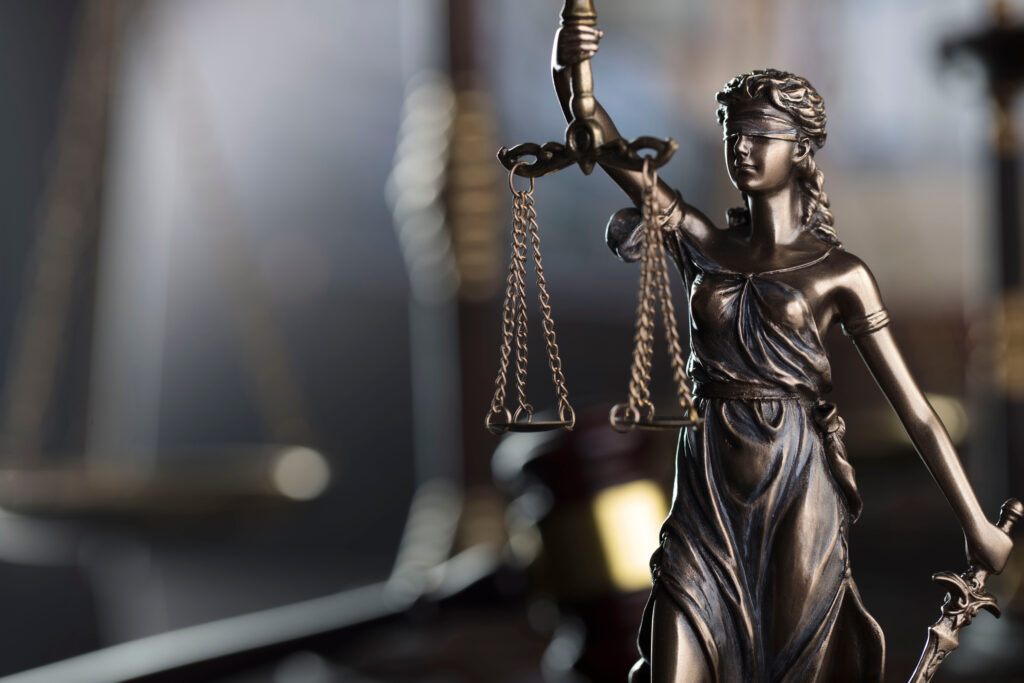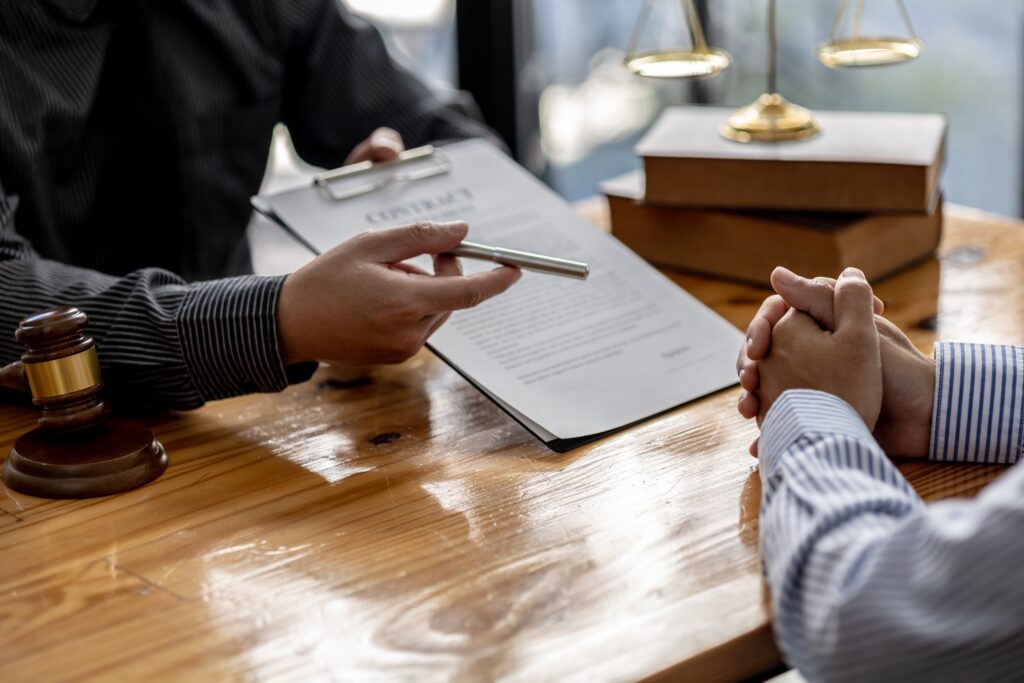The devastating emotional toll of losing a loved one can increase when that loss occurs due to another party's negligent, reckless, or intentional actions. In such cases, surviving family members or other designated individuals may pursue a legal action known as a wrongful death claim.
These claims seek to hold the responsible party accountable for the death and to provide financial compensation to the survivors.
If you know or believe your loved one’s death occurred under wrongful circumstances, do not hesitate to seek legal guidance. An experienced Brooksville wrongful death attorney can protect your rights and represent your best interests to get you the most favorable case result.
Understanding Wrongful Death
In legal terms, wrongful death refers to a fatality that results from the misconduct, negligence, or wrongful act of another individual or entity. It is a civil cause of action that allows the surviving family members or estate representatives to seek compensation for their loss.
While the criminal justice system may impose criminal penalties (such as jail time) on the responsible party, a wrongful death lawsuit addresses the civil aspects of the tragedy by providing financial restitution to victims’ survivors.
Individuals or organizations whose actions directly caused the victim's death typically face wrongful death claims. These claims provide financial relief to the surviving family members and hold the at-fault party accountable for their actions.
Common Causes of Wrongful Death
A wrongful death can occur in many different circumstances. Some of the most common causes include:
Car Accidents and Motor Vehicle Collisions
Car accidents are among the leading causes of wrongful death. These deaths often result from reckless driving, driving under the influence (DUI) of alcohol or drugs, speeding, distracted driving, or failure to follow traffic laws. The responsible driver or other at-fault parties (e.g., vehicle manufacturers or governmental entities) may be liable in such cases.
Premises Liability
Property owners are legally obligated to ensure their premises are safe for visitors, tenants, or employees. If someone dies due to hazardous conditions on someone else’s property (like a slip-and-fall accident, faulty building structure, or inadequate security), a wrongful death claim may arise under premises liability law.
Product Liability
In cases where a defective product causes the death of a person, you can file a wrongful death claim against the manufacturer, distributor, or seller.
For example, a poorly designed car seat, a dangerous pharmaceutical drug, or a malfunctioning appliance that leads to fatal injuries may all be the basis for a product liability-based wrongful death claim.
Nursing Home Abuse or Neglect
Elderly residents in nursing homes or assisted living facilities are vulnerable to mistreatment, neglect, or abuse. If such mistreatment leads to the death of a resident, the family may pursue a wrongful death lawsuit against the facility or the individuals responsible for the abuse.
Liability for Wrongful Death
Determining liability in a wrongful death case involves proving that another party's actions were directly responsible for the death. You can determine wrongful death liability through several legal bases, such as:
Negligence
In the majority of wrongful death claims, the party at fault is deemed negligent. Negligence refers to a failure to act with the level of care that a reasonable person may exercise in similar circumstances. For example, you can hold a driver who runs a red light and causes a fatal accident negligent.
Strict Liability
Some situations hold the defendant strictly liable for the victim's death, regardless of fault. This applies particularly in cases of defective products or dangerous activities. For instance, you can hold a manufacturer strictly liable for a fatal injury caused by a faulty product even if the manufacturer was not negligent.
Intentional Acts
If a person intentionally causes harm that results in death (e.g., in the case of a violent assault), you can hold them liable for wrongful death in addition to pressing criminal charges.
Vicarious Liability
In certain situations, you can hold an employer liable for the wrongful death caused by an employee’s actions during employment. This principle is known as vicarious liability. For instance, if a truck driver employed by a shipping company causes a fatal accident while on the job, you can hold the company responsible for the death.
Who Will Be At Fault for a Wrongful Death?
Liability can rest with multiple parties. Some of the parties often found liable for wrongful death include, but are not limited to:
- Drivers: In car accident cases, the at-fault driver may bear liability, especially if they were engaged in dangerous driving behaviors during the crash.
- Employers or employees: When an employee causes someone's death while performing job duties, the employer can share responsibility.
- Product manufacturers: If a defect in a product leads to someone's death, you can hold the manufacturer (and designers, sellers, and retailers) responsible.
- Property owners: If the death resulted from hazardous conditions on someone's property, the owner may be liable.
- Pharmaceutical companies or distributors may be liable for wrongful death in cases involving faulty or harmful drugs or medical devices.
- Governmental bodies: In certain cases, you can hold a government entity liable if its negligence (e.g., poorly maintained roads or infrastructure, improper handling of public services) leads to death.
Determining fault is one of the key parts of a wrongful death claim. A wrongful death lawyer can thoroughly investigate and use the available evidence to ensure you hold everyone who had a hand in your loved one’s death responsible.
What Parties are Entitled to File a Wrongful Death Claim?
A special detail to consider when filing a wrongful death claim is who can file and handle the claim.
The specific individuals who can file a wrongful death lawsuit vary depending on the state, but generally, the following parties qualify:
- Estate representatives: Several states require the personal representative or executor of the victim’s estate to file a wrongful death lawsuit on behalf of the beneficiaries.
- Immediate family members: In many states, the closest family members of the deceased — such as spouses and children – are eligible to file a wrongful death claim. These individuals have a direct financial and emotional interest in the deceased’s life and may suffer significant financial losses due to the death.
- Parents: If the victim was a minor or unmarried with no children, the parents or legal guardians may file the claim on behalf of the estate.
When you consult your wrongful death attorney, they can explain local laws concerning filing wrongful death claims.
Types of Damages Available in Wrongful Death Cases
Wrongful death lawsuits vary from other types of personal injury lawsuits, including car accident lawsuits, particularly in the types of damages available. Because the victim has passed away unexpectedly, the victim’s family often faces many financial burdens, which may be relieved with proper compensation.
In a wrongful death lawsuit, the surviving family members or estate representatives may seek several types of damages, including:
Economic Damages
Economic damages compensate for financial, tangible losses, such as:
- Medical expenses related to the victim’s final injury or illness
- Funeral and burial costs
- Lost income and benefits (e.g., earnings, pension, social security) the victim might have provided had they lived
- Loss of inheritance the victim may have likely left to their family
These damages are often less challenging to prove as more evidence is available.
Non-Economic Damages
Non-economic damages aim to compensate for intangible losses, including:
- Pain and suffering endured by the family (and/or the victim before death, depending on state law)
- Emotional distress and mental anguish suffered by the survivors, such as loss of companionship, guidance, and affection.
- Loss of consortium (for a spouse)
Because non-economic damages are non-financial, proving these damages often requires more evidence and specific calculations.
Punitive Damages
In certain cases, a court may award punitive damages to punish the defendant for egregious or reckless conduct (e.g., drunk driving, intentional harm). Punitive damages deter others from similar behavior.
Time Limits for Wrongful Death Claims
If you want to pursue a wrongful death claim, remember that the law sets time limits. The statute of limitations for your state only allows a short time to take legal action.
Statutes of limitations for wrongful death claims vary by state but often provide less time than other personal injury cases. In most states, plaintiffs only have one to three years to file their claims. However, the timeframe can vary, as certain exceptions can exist.
Filing your claim timely is of the utmost importance. If the statute of limitations expires before you file your wrongful death lawsuit, the court may dismiss the case even if it has merit. This means you may completely lose the opportunity to receive compensation for the loss.
Remember to consult with a wrongful death lawyer as soon as possible after the death of a loved one. They can help determine your state's applicable statute of limitations and ensure that all necessary paperwork is filed within the required timeframe to avoid any issues or setbacks.
Do You Need a Wrongful Death Attorney?
After the unforeseen death of a loved one, you likely need time to yourself to properly grieve and adjust to life without them.
Dealing with attorneys and lawsuits may seem daunting and altogether off-putting, but it can make a difference in your situation. While money cannot bring back your loved one, it can substantially help alleviate some of the weight you now have to carry.
Hiring legal representation is one of the best ways to ensure you get the justice and compensation you deserve.
A wrongful death attorney can manage your case from inception to completion, safeguarding your rights and aggressively pursuing the best possible outcome. Under most circumstances, individuals with attorneys fare much better than those without.
The Benefits of Hiring a Skilled Lawyer
Having an experienced wrongful death attorney can make a significant difference in your experience and the outcome of your case. Among the many ways a lawyer can support you, they can best assist with:
Legal Guidance
A wrongful death attorney understands the nuances of wrongful death law and will provide the highest-quality legal advice. They can explain your rights, the strength of your case, and the best course of action.
Investigation and Evidence Gathering
A skilled attorney will thoroughly investigate the death's circumstances, gather evidence, and consult with professionals (such as accident reconstructionists or medical professionals) to strengthen your case.
Negotiation with Insurance Companies
In many cases, the defendant's insurance company will attempt to settle quickly for a low amount. An attorney will negotiate to ensure you receive fair compensation for all your damages.
Court Representation
If your case goes to trial, a wrongful death attorney will represent your interests in court. An attorney ensures that they follow all legal procedures and present the best possible case to secure compensation. They will also handle the complexities of courtroom litigation, cross-examine witnesses, and work to counter any defense strategies.
Emotional Support
A wrongful death lawyer can help ease some of the burdens by managing the legal process, allowing you to focus on grieving, healing, and time with your family.
After the Wrongful Death of a Loved One, Seek Legal Assistance Right Away
A wrongful death claim can provide vital financial support for those who have lost a loved one due to another party's wrongdoing. Given the complexities of wrongful death law, hiring a knowledgeable and experienced Brooksville personal injury attorney ensures they serve justice and help survivors receive the compensation they deserve.
If a family member dies in an accident, consult a qualified wrongful death attorney who can guide you through the legal process and achieve the most advantageous outcome with you.












